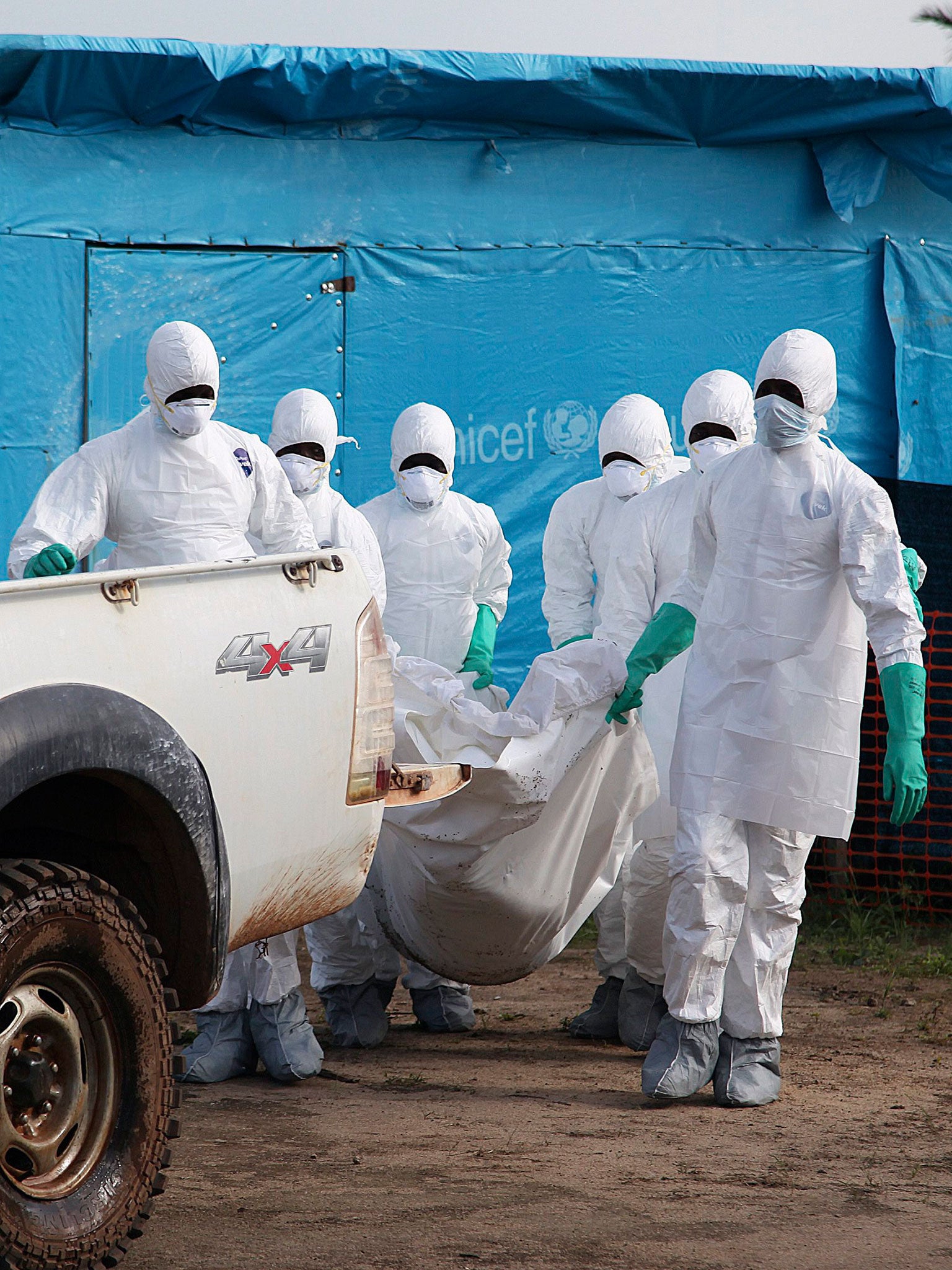Kidnapped Sierra Leone Ebola victim dies after ‘healer’ treatment
Fear and mistrust of health workers are hindering efforts to contain an Ebola outbreak that has killed 450

Your support helps us to tell the story
From reproductive rights to climate change to Big Tech, The Independent is on the ground when the story is developing. Whether it's investigating the financials of Elon Musk's pro-Trump PAC or producing our latest documentary, 'The A Word', which shines a light on the American women fighting for reproductive rights, we know how important it is to parse out the facts from the messaging.
At such a critical moment in US history, we need reporters on the ground. Your donation allows us to keep sending journalists to speak to both sides of the story.
The Independent is trusted by Americans across the entire political spectrum. And unlike many other quality news outlets, we choose not to lock Americans out of our reporting and analysis with paywalls. We believe quality journalism should be available to everyone, paid for by those who can afford it.
Your support makes all the difference.A Sierra Leone Ebola patient, whose family sparked a nationwide hunt when they forcefully removed her from a treatment centre and took her to a traditional healer, died in an ambulance on the way to another hospital.
Health officials say fear and mistrust of health workers in Sierra Leone, where many have more faith in traditional medicine, are hindering efforts to contain an Ebola outbreak which has killed more than 450 people in the country. In recent days crowds gathered outside clinics and hospitals to protest against what they see as a conspiracy, in some cases clashing with police as they threatened to burn down the buildings and remove the patients.
Amadu Sisi, a senior doctor at King Harman hospital in the capital Freetown, from which the patient was taken, said on Saturday that police found her in the house of a healer.
Her family refused to hand her over and a struggle ensued with police, who finally retrieved her and sent her to hospital, he said.
“She died in the ambulance on the way to another hospital,” Dr Sisi said.
Across Guinea, Liberia and Sierra Leone at least 660 people have died from the worst outbreak yet of the haemorrhagic fever, the World Health Organisation (WHO) said. The outbreak has placed great strain on the health systems of some of Africa’s poorest countries.
The virus is still spreading. A 33-year-old American doctor working for relief organisation Samaritan’s Purse in Liberia tested positive for the disease on Saturday.
In Lagos, Nigeria’s commercial capital, a Liberian man who tested positive died in quarantine on Friday.
West African health officials say the deep cultural suspicions mean relatives in some countries will continue to try to remove sick patients from hospitals and carry out traditional funerals.
These often involve the manual washing of the body, instead of allowing the authorities to bury them.
Sierra Leone now has the highest number of Ebola cases, at 454, surpassing neighbouring Guinea where the outbreak originated in February.
Police were guarding the country’s main Ebola hospital in Kenema in the West African country’s remote east on Saturday, where dozens are receiving treatment for the virus.
Thousands had gathered outside the clinic the day before, threatening to burn it down and remove the patients. Residents said police fired tear gas to disperse the crowds and that a 9-year-old boy was shot in the leg by a police bullet.
Assistant inspector general Alfred Karrow-Kamara said on Saturday the protest was sparked by a former nurse who had told a crowd at a nearby fish market that “Ebola was unreal and a gimmick aimed at carrying out cannibalistic rituals”.
He said calm had been restored to Kenema on Saturday, adding that a strongly armed police presence was in place around the clinic and the local police station.
Some health workers from the clinic have been reported absent from work because of “misconceptions by some members of the community,” according to a local doctor.
Ebola kills up to 90 per cent of those who are infected, although the fatality rate of the current outbreak is around 60 per cent. Highly contagious, especially in the late stages, its symptoms include vomiting and diarrhoea as well as internal and external bleeding.
President Ernest Bai Koroma said on Saturday that the government planned to “intensify activities and interventions in containing the disease and stopping its spread” with a view to ending the disease within 60 to 90 days.
The new strategy will focus on contact tracing, surveillance, communications and social mobilisation, social services, logistics and supplies, according to the President’s statement.
Reuters
Join our commenting forum
Join thought-provoking conversations, follow other Independent readers and see their replies
Comments